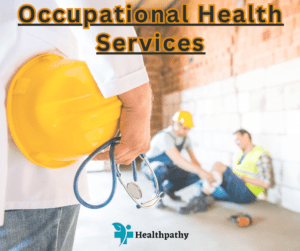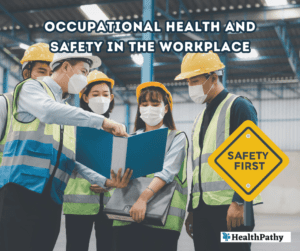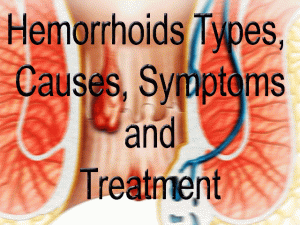Occupational Health Services
Occupational health services refer to a comprehensive set of programs, policies, and practices designed to protect and promote the health, safety, and well-being of employees within a workplace setting. These services have evolved, starting from basic first aid provisions to encompassing a wide range of activities that address both the physical and mental health concerns of employees. The field of occupational health services has developed to become an integral part of modern businesses, focusing on prevention, early intervention, and overall wellness.

Components of Occupational Health Services
Workplace Safety Measures:
Ensuring a safe working environment is a cornerstone of occupational health services. This involves identifying potential hazards within the workplace, conducting risk assessments, and implementing safety protocols. Regular safety training and education sessions help employees understand how to handle hazardous materials, use protective equipment, and respond to emergencies. Preparedness for unexpected situations such as fires, accidents, or chemical spills is vital in minimizing potential risks.
Health Surveillance:
Monitoring the health of employees is crucial for detecting early signs of illness or occupational diseases. Regular medical check-ups help identify health issues that might be linked to workplace exposure. For instance, workers who are exposed to chemicals, noise, or ergonomic stressors may undergo specific health assessments to prevent long-term health complications. By monitoring exposure levels and providing timely medical interventions, occupational health services aim to prevent work-related health problems.
Health Promotion:
Promoting a healthy lifestyle among employees contributes to their overall well-being. Wellness programs may include workshops on nutrition, exercise routines, stress management, and smoking cessation. Addressing mental health is gaining increasing attention, with programs focusing on reducing workplace stress, offering counseling services, and promoting work-life balance. These initiatives not only improve employees’ physical and mental health but also boost morale and job satisfaction.
Injury Management and Rehabilitation:
Accidents and injuries are unfortunate but inevitable aspects of some workplaces. Occupational health services play a key role in managing such situations efficiently. Immediate medical attention and appropriate treatment protocols can speed up recovery and minimize the impact of injuries. Rehabilitation plans, including physical therapy, are designed to facilitate employees’ return to work as soon as possible. This not only benefits the individual but also maintains productivity levels for the organization.
Benefits of Occupational Health Services
Improved Employee Health:
Occupational health services contribute to the overall health of employees by addressing potential health risks before they escalate. Regular check-ups and early detection of health issues help prevent illnesses and reduce absenteeism. The focus on wellness programs and mental health support promotes a healthier lifestyle and better emotional well-being among employees.
Enhanced Productivity:
A healthy workforce is a productive workforce. By ensuring the safety and health of employees, occupational health services reduce the likelihood of injuries and illnesses that can lead to work disruptions. Moreover, employees who feel valued and supported in their health endeavors are more motivated and engaged, resulting in increased productivity and efficiency.
Legal and Regulatory Compliance:
Workplace safety regulations are becoming increasingly stringent. Occupational health services help organizations adhere to these regulations by implementing safety measures, conducting health assessments, and maintaining proper records. Compliance not only avoids legal penalties but also fosters a positive reputation for the company.
Cost Savings:
Investing in occupational health services can lead to substantial cost savings in the long run. By preventing workplace injuries and illnesses, companies reduce the need for expensive medical treatments and compensation claims. Additionally, healthier employees require fewer sick days, leading to improved productivity and reduced overtime costs.
Challenges and Considerations
Resource Allocation:
Establishing effective occupational health services requires financial investment in terms of medical personnel, equipment, and training. Ensuring the availability of qualified medical professionals who understand both workplace hazards and health concerns is essential for the success of these services.
Employee Engagement:
Encouraging employees to actively participate in wellness programs and health assessments can be challenging. Some employees might be skeptical about the effectiveness of these programs, while others might resist sharing personal health information. Employers need to create a supportive environment that emphasizes the benefits of such services.
Confidentiality and Privacy:
Handling sensitive health information requires strict adherence to privacy regulations. Occupational health services must maintain the confidentiality of employees’ medical records and information. Establishing trust is crucial to ensure that employees feel comfortable sharing their health concerns.
Integration with Company Culture:
For occupational health services to be truly effective, they should align with the company’s values and culture. Integrating health and wellness initiatives seamlessly into the organization’s mission and vision fosters a sense of belonging and encourages participation.
The Future of Occupational Health Services
Technology Integration:
The integration of technology is expected to revolutionize occupational health services. Telemedicine and remote health monitoring allow for quick consultations and assessments, particularly useful in remote or dispersed work settings. Data-driven insights can help identify patterns and trends, enabling proactive measures to prevent health issues.
Focus on Mental Health:
Recognizing the significance of mental health in the workplace, future occupational health services are likely to place greater emphasis on addressing stress, anxiety, and other mental health challenges. Providing counseling services and creating a supportive environment can improve employees’ emotional well-being.
Flexible Work Arrangements:
The rise of remote and hybrid work models necessitates extending occupational health services beyond traditional office settings. Ensuring that employees working from home have access to the same level of health support becomes crucial for maintaining their well-being.
Holistic Approach:
Occupational health services are moving towards a more holistic approach that considers the overall well-being of employees. This includes not only physical and mental health but also social and emotional aspects. Fostering work-life balance and promoting a sense of community contribute to employees’ overall quality of life.
Summary:
Occupational health services are integral to creating a safe, healthy, and productive work environment. By addressing workplace safety, health surveillance, health promotion, and injury management, organizations can reap numerous benefits, including improved employee health, enhanced productivity, legal compliance, and cost savings. While challenges like resource allocation and employee engagement exist, the future of occupational health services looks promising, with technology, mental health focus, flexible work arrangements, and a holistic approach paving the way for a healthier and happier workforce. As companies prioritize the well-being of their employees, they not only contribute to the success of their business but also promote a culture of health and wellness in society at large.
Related Articles:



Follow us:





